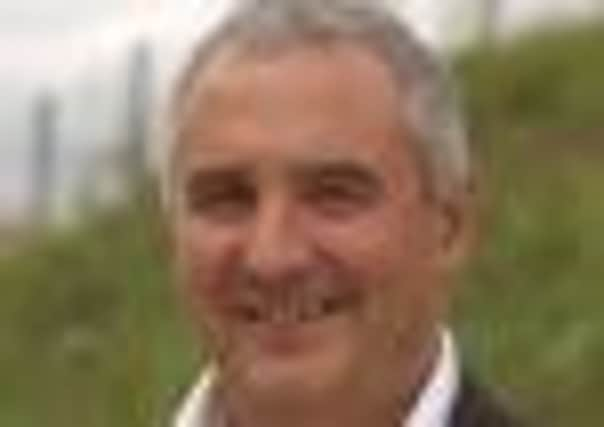Brian Ferguson: Creative Scotland’s sad tale should end happily


Any excuse to head north out of Edinburgh and Glasgow feels like an escape from their traffic congestion, roadworks – and at this time of year – frenzy of Christmas shoppers.
But as I laid out the morning newspapers in front of me, I was also thankful that – at long last – a chink or two of light could be seen piercing the gloom that has enveloped the arts in Scotland over the previous six months.
Advertisement
Hide AdAdvertisement
Hide AdIt was less than 24 hours since Creative Scotland had revealed the findings of a marathon board meeting, but already it felt like the landscape had changed. There was no doubt nervousness about how the lengthy statement issued late on Friday afternoon would go down, particularly among some of its more vocal critics.
After urging artists to speak to them rather than carp and condemn on social media sites, I couldn’t help but chuckle at the thought of the relief that doubtless greeted the generally positive reaction on Twitter and Facebook. It was clear how much the board of Creative Scotland had moved since its infamously “patrician and emollient” response to the damning letter by 100 of Scotland’s leading artists.
I don’t think anyone, inside or outside of Creative Scotland, will believe for a minute that its crisis is anywhere near over. You only have to re-read Friday’s statement and consider the staggering scale of wrongdoing that has been admitted. This was not just talking about one or two bad decisions here, this was acknowledgement of fundamental failings on all manner of fronts.
That it should have come to this at what should have been the climax of the “Year of Creative Scotland” – a phrase many people wish had never been dreamed up – was pretty staggering. The one line that leapt off the page of the statement was short and to the point: “It is time that Creative Scotland stopped being the story.”
While there was an element of wishful thinking about that, there was also an admission that the focus of much of its work had been badly misplaced.
While the Scottish Government, and culture secretary Fiona Hyslop in particular, have much to be proud of when it comes to the financial hand that the culture sector has been dealt compared to elsewhere in the UK, they also have to share some of the blame for their part in the propaganda bandwagon.
Perhaps by the time the much-maligned Creative Scotland Awards come around on Thursday night, the spotlight will finally have landed on the many worthwhile artists and projects on the shortlist.
One of the many ironies about the crisis is that it has coincided with a time when the cultural scene is actually in rude health – and is arguably as strong as it has ever been.
Advertisement
Hide AdAdvertisement
Hide AdProof positive of this could be found at the end of my journey on Saturday in Fort William, where the Scots Trad Music Awards not only played out before a sell-out audience, but was broadcast live on BBC Alba.
In the last 12 months, Scotland has had a major prize winner at Cannes, shortlisted candidates for the Turner Prize and Mercury Music Prize, the National Theatre of Scotland has unveiled a new artistic director, while Vicky Featherstone’s farewell year saw the premiere of the play Enquirer chime wonderfully with the Leveson inquiry.
It will be a long time before the Edinburgh festivals boast anything as memorable as Speed of Light, the outdoor extravaganza on Arthur’s Seat, while people are still talking about the showcase concert for Sistema Concert and the Simón Bolívar Symphony Orchestra at Raploch in June.
There’s no doubting the impact made in cinemas by Brave around the world this year, while World War Z and Under the Skin are already in the can. The advance details of next year’s Glasgow Film Festival are a declaration of the event’s ambitious intent.
In just a few weeks’ time, Celtic Connections will be turning 20 while T in the Park’s own marketing machine swung into action last week ahead of it reaching the same landmark in July. And in September, Glasgow’s spectacular Hydro arena will open its doors. There is clearly much to celebrate.
Last week’s Creative Scotland statement included a commitment to put artists, creative practitioners and cultural organisations at the heart of everything it does. You can only wonder why and where this basic philosophy got lost along the way.